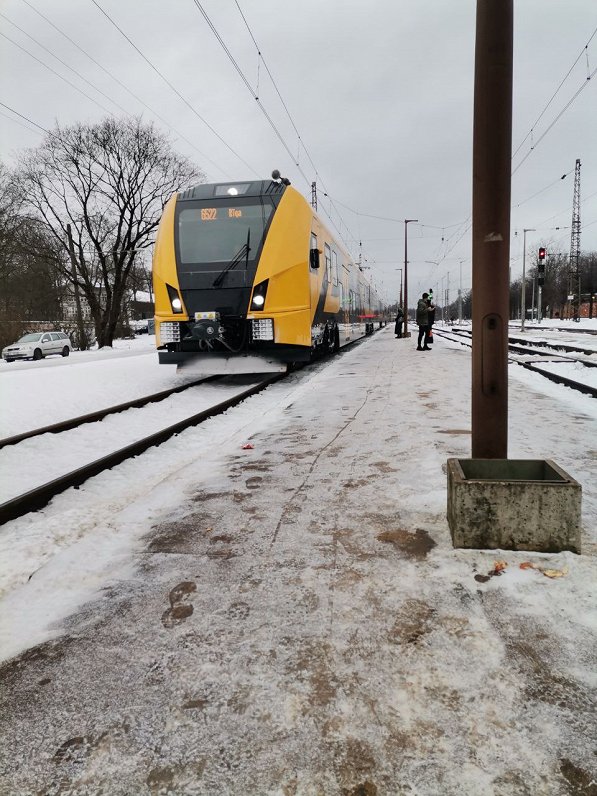Vivi said that by the end of the year, PV plans to operate passenger transport with about 12 new electric trains.
The company explained that initially the train manufacturer - Czech company “Škoda Vagonka” - expressed the goal of transferring 19 new electric train compositions to Vivi by the end of this year. However, the company has managed to prepare 17 new trains, which PV finished accepting Wednesday, December 27.
Vivi is working to release a new version of the mobile app in early January with a range of functionality improvements, including the ability to identify which journeys will be run on the new electric trains on the train timetable.
As reported, on Friday, December 15, Vivi started passenger transportation with three new electric trains in the direction of Tukums, Aizkraukle and Skulte, while on December 16, the new electric trains started running in the direction of Jelgava as well.
In total, 20 electric train compositions have been delivered to Latvia.
Latvian passenger rail carrier will receive all 32 electric trains fully ready for the Vivi train passenger service by mid-2024. Each of them consists of four carriages. One electric train is 109 meters long. Each train has seats for 436 passengers and standing spots for 454 passengers. The new trains are aligned with platforms to improve accessibility.
The design speed of the new trains is up to 160 km/h (currently 120 km/h). The maximum speed will be able to be developed where railway infrastructure will allow it.
The total cost of the whole new electric train project is EUR 257,889 million and the purchase of 23 new electric train configurations is planned with co-financing from the Cohesion Fund of the European Union of EUR 114,211 million.
At first, it was promised that passengers would be able to board the new trains by the end of summer, then only in autumn. An agreement was originally concluded between Latvian state rail company JSC "Pasažieru vilciens" (Passenger train) and the Czech company "Škoda Vagonka" for the purchase of 32 new electric trains back in 2019, though that came off the back of a tender that started all the way back in 2015. First the Covid pandemic and then the war in Ukraine delayed delivery.






























